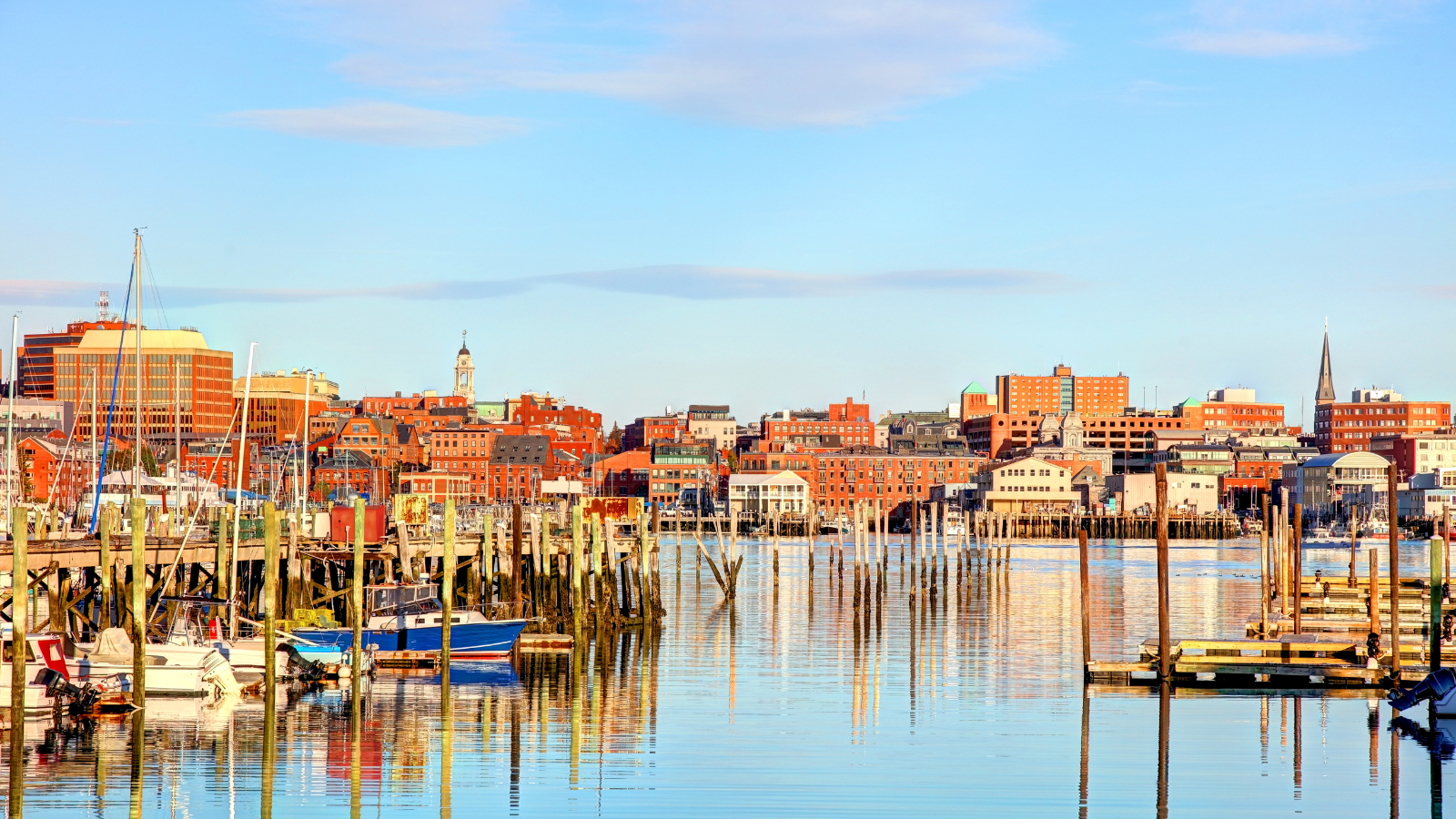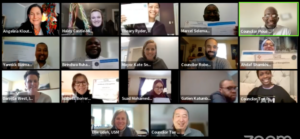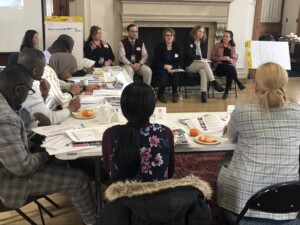
Leading in Maine: Portland’s journey to become Certified Welcoming
In October 2022, the City of Portland, Maine became the first in the state to become Certified Welcoming and among the first in the New England region. In this blog, we asked Mary Davis, Interim Director of the city’s Housing and Economic Development Department, and Angelina Klouthis Jean, a consultant for the city’s Natural Helpers program, what the journey was like to achieve the Certified Welcoming designation.
What compelled the city to commit to becoming Certified Welcoming?
The City of Portland really valued the opportunity to learn about best practices, opportunities, and challenges from peers across the county, which brought us into the Welcoming Network. Once we became involved in the training opportunities, it was clear that there were tremendous benefits from going through the Certified Welcoming process as a tool to bring local partners into the important work to foster a sense of belonging for all.
The Certified Welcoming process gave us actionable micro-steps to bring partners both internal and external to our core team at the city into the work.

Participants of Portland’s 2022 Natural Helpers program gather on Zoom to graduate. Photo by Angelina Klouthis Jean
What were some of the challenges of bringing local partners together prior to the Certified Welcoming program?
One challenge we had was coordinating classes and training for those learning English as a new language. There were many providers throughout the community, but no one was coordinating them or asking, “Was anyone being overlooked? Do we need to have more or less classes?”
The Office of Economic Opportunity (OEO), which lies within the Housing and Economic Development Department, initiated a collaboration between the different providers and opened lines of communication to coordinate scheduling and align on the curriculum. The Certified Welcoming process helped identify other areas within the community that struggled with the same issues; it brought value to collaboration and produced an impact.
What do you think makes Portland uniquely positioned to be a Certified Welcoming place?
Portland has always been a welcoming community, with many people willing to share in and assist with making others feel welcome. It is a special place and the community has repeatedly shown a willingness to step up.
A few years ago, many asylum seekers arrived in Portland and it overwhelmed all of our systems. But everybody came together, locally and statewide, to figure out housing and food solutions; volunteers welcomed others into their homes. Soon, other communities began leaning on Portland to come up with solutions.
The Certified Welcoming process emphasizes the welcoming spirit of Portland. Welcoming is something we’re always working on and striving to be better at. When the pandemic began, Portland worked with Zoom at the corporate level to facilitate live translation and interpretation for our public meetings into the 5-6 languages spoken in our community. The city was one of the first to take this approach and work with Zoom directly on the solution.
How does being Certified Welcoming help Portland stand out from the surrounding communities?
Our hope is that we can use this tool to bring surrounding cities in our community to this work in order to best serve community members throughout the region.
What were the most affirming aspects of the Certified Welcoming process?

City staff members meeting with the participants of the 2020 Natural Helpers cohort to talk about city government, how it works, and the resources available in February. Photo by Angelina Klouthis Jean
It was amazing for us to see how often our Natural Helpers program served as a reference point on how we are advancing our welcoming work.
The Natural Helpers program allowed us to establish relationships across communities and keep them going in the long term. Anyone in the community can join, regardless of background, and through the cohort, we help foster relationships between different groups that otherwise may not have met.
Having those contacts and the ripple effect they have in the community supports the work we were doing as a Certified Welcoming city.
What were the biggest challenges of undergoing the certification process?
The pandemic really interrupted our work. We were scheduled for our Certified Welcoming audit in March 2020, and ended up putting it on pause until June of 2022. The audit was an important reminder for all of us that it was time to re-engage in that work.
The process of updating our existing language access policy and implementing the updated policy was also delayed due to the pandemic.
What do you believe will have the biggest impact on Portland residents as a result of becoming a Certified Welcoming place?
This is an important opportunity to recognize the hard work of so many partners, including the departments of police, fire, social services, health and human services.
Outside of local government, the English learning collaborative, Catholic Charities Maine, Office of Refugee Services, University of Southern Maine, the Maine Immigrants’ Rights Coalition, the OEO advisory team, and many more partners were also vital to the impact of our Certified Welcoming designation.
We are excited to use our audit report as a tool to prioritize our work and solicit support from community partners, city leadership, and elected officials.
The Certified Welcoming designation lasts for three years. What do you hope to achieve in that time to retain the designation?
We have a lot of work to do with language access. The city is committed to this work. We hope to work in partnership with a new department of Justice, Diversity, Equity and Inclusion to provide training for staff and enhance our service delivery in the top languages spoken in our community, among them Portuguese, Arabic, and Spanish.
What are some recommendations or suggestions you have for other cities considering becoming Certified Welcoming?
Start a Natural Helpers program! It will help fulfill many of the Certified Welcoming requirements. In addition, the Natural Helpers Program and the Certified Welcoming process has long-lasting benefits and fosters a sense of belonging within the community.